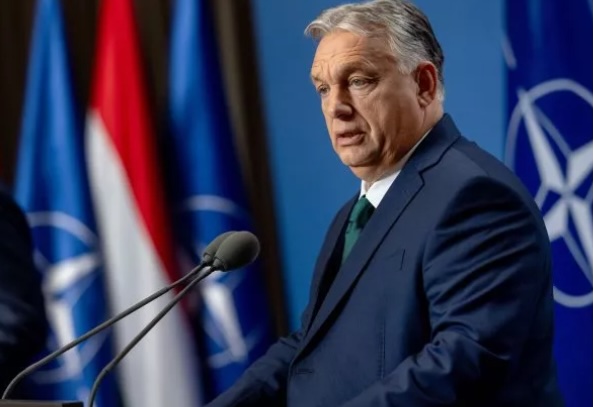Already a subscriber? Make sure to log into your account before viewing this content. You can access your account by hitting the “login” button on the top right corner. Still unable to see the content after signing in? Make sure your card on file is up-to-date.
Hungarian Prime Minister Viktor Orbán has pushed back on calls from President Donald Trump to halt the purchase of Russian oil.
Some shit you should know before you dig in: Earlier this month, President Trump called on European Union countries to stop purchasing Russian oil and to impose tariffs on Chinese goods as part of a broader strategy to cut off funding for Russia’s war in Ukraine. Trump argued that targeting Russia’s oil industry would help accelerate an end to the war. Russia’s war machine remains heavily funded by revenue from oil and gas exports, which analysts say is one of the key reasons its economy has not fully collapsed under the weight of Western sanctions. Despite efforts to reduce dependence, the EU continues to import significant volumes of Russian energy, prompting critics to accuse member states of indirectly financing the war.

What’s going on now: In a notable development, Prime Minister Orbán told President Trump in a recent phone call that cutting off Russian oil and gas would be an immediate economic “disaster” for Hungary. Orbán warned that the Hungarian economy would suffer a 4% drop in output “within a minute” if Russian energy imports were halted, effectively bringing the country “to its knees.” He reportedly stressed Hungary’s geographic and infrastructural limitations, noting that it is a landlocked country with limited alternatives.
Following the call, Trump appeared to acknowledge the difficulty Hungary faces in breaking away from Russian energy. Speaking to reporters at the White House, Trump called Orbán a “great guy” and a “great friend,” and noted that countries like Hungary and Slovakia are “sort of married to one pipeline.” While Trump had previously advocated for a complete NATO-wide cutoff of Russian oil, his comments suggested a more flexible stance toward Hungary’s unique position.
This all comes as Ukraine ramps up its campaign to cripple Russia’s energy infrastructure. In recent weeks, Ukrainian drones have targeted major Russian refineries, including the Gazprom-operated Salavat complex and other facilities in the Bryansk, Samara, and Volgograd regions. These attacks have sparked fires, disrupted fuel production, and led to widespread shortages, particularly in occupied Crimea, where gas stations have reportedly run dry.
Analysts estimate that the strikes have slashed Russia’s refining capacity by as much as 20%, forcing the government to postpone refinery maintenance and prioritize domestic fuel supplies.







